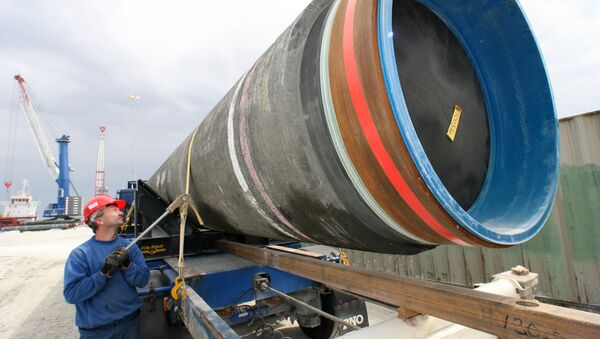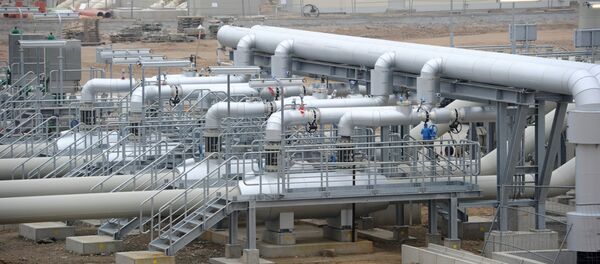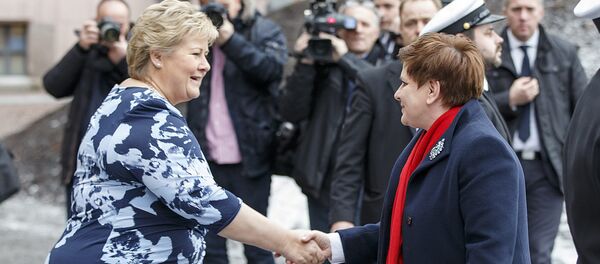According to chief engineer Tom Masalin, who is in charge of land tenure in the Kotka municipality, Nord Stream 2 is expected to create more jobs for the city than its forerunner, which was completed a couple of years ago. The decision by the Nord Stream board, however, will not be taken until the coming summer.
"Kotka's position is rather strong in this regard. On top of all, we have a positive working experience with this city, which also boasts a handy disposition," said Minna Sundelin of Nord Stream 2's press department as quoted by Finland's national broadcaster Yle.
According to civil engineer Tom Masalin, who admitted that it is very likely that Nord Stream's leadership picks Kotka.
"Roughly 60 percent of the pipes are expected to be cast in concrete in Kotka. I'm almost positive that the work is going to be done here, unless, of course, something unexpected happens," said Masalin.
Forty percent of the pipes, which were later plunged into the Baltic sea, were cast in concrete in Kotka during Nord Stream's previous project. The Eupec company, which was in charge of the work, managed to create 200 new jobs then.
"This time we plan to create between 300 and 400 new jobs," said Masalin.
At present, economic cooperation with Russia on large-scale projects may be regarded as largely advantageous for Finland due to the ongoing economic crisis in Finland, with unemployment reaching its 13-year high of 11.8 percent in 2015. On top of economic stagnation, Finland turned out to be one of the prime victims of the EU-imposed sanctions against Russia as its neighbor and long-standing trade partner. In recent years, the two countries witnessed a steady decline in the level of investment, with bilateral trade and tourism dropping by 40 and 19 percent respectively.
Nord Stream 2 is a pipeline project, aimed to provide up to 55 billion cubic meters of direct gas supplies from Russian shores through the Baltic Sea, bypassing the Baltic states and Poland, to the German coast. The project has met opposition from some EU member states, such as Poland and the Czech Republic, over fears of increased energy dependence on Russia.




